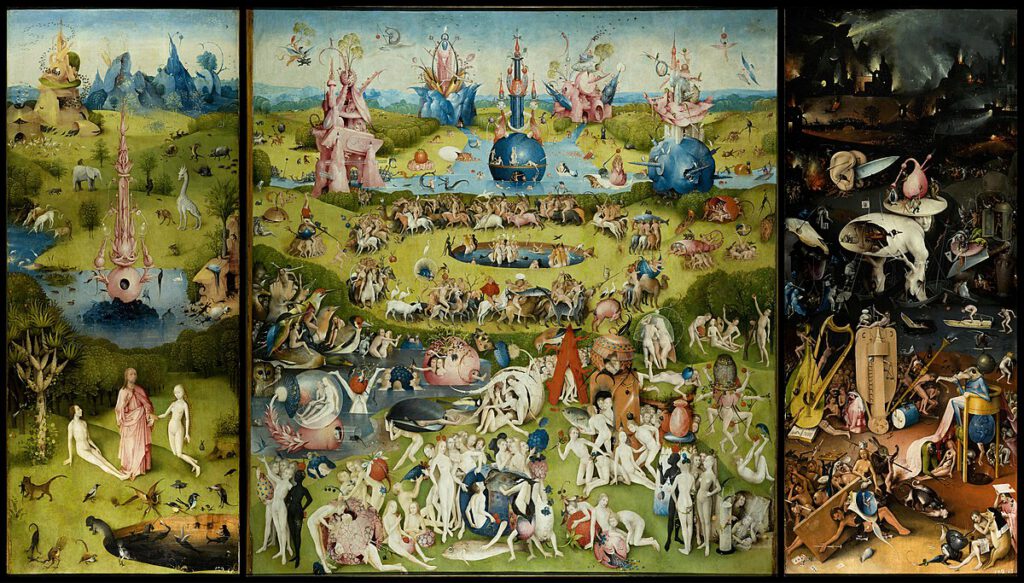I am not a fan of computer games, yet there was one game I was obsessed with—Assassin’s Creed. The story of the game is inspired by the legend of Hassan-i Sabbah, who, according to myth, possessed the key to heaven’s door. It is said that Sabbah had a castle in the lands we now call Iran and created a paradise filled with lush gardens, rare animals, and young boys trained as soldiers. Those he chose, drugged with opium, would awaken in this artificial paradise, believing they had entered heaven. This myth always struck a chord with me—perhaps because it reminded me of my childhood home.
In our house, there was a room that was off-limits to everyone except my grandfather. It wasn’t just a room; it was a symbol of mystery and allure, the gate to a personal heaven. Even after my grandfather’s death, when I inherited the key, I couldn’t bring myself to enter that room until I was twenty-four. For the kids in the neighborhood, it was the center of fascination. Every summer, when my grandfather returned from Germany, children would gather around him, eagerly waiting for him to unlock the door. He would bring out magical items: Coke, candies, watches, clothes—things that seemed to belong to another world. I remember the watches vividly, with their transparent faces revealing the mechanisms inside, ticking without batteries.
That room represented something more than just material treasures. It was an extension of my grandfather’s Germany—a place I had never seen but had dreamed of endlessly. My imagination transformed it into an enchanted space, filled with the culture and fantasies of a land I couldn’t fully comprehend. Yet this magical allure also came with strict conditions. My grandfather wielded the key not just to the room but to the treasures inside and the connection to this imagined world.
There were two barriers to this paradise: my grandfather himself and the frosted glass of the door and windows. That frosted glass, with its blurred silhouettes and fragmented light, only amplified the room’s mystery. It seemed to grow larger and more layered in my mind. Behind that glass, I imagined endless spaces, each one filled with objects of desire—unfamiliar toys, strange foods, peculiar clocks. The room became a world of its own, fueled by the power of what couldn’t be fully seen or understood.
This dynamic always reminded me of Sabbah’s paradise and his command over his followers. My grandfather, in his own way, cultivated a similar authority. He determined what we could access and under what conditions. His authority extended into our daily lives: he wanted me to go to the mosque, to learn the Quran, to obey. My refusal to follow his expectations only increased the distance between me and the room, the paradise it represented. He would become angry when I avoided the mosque and would loudly mock my visits to my aunts, whom he disapproved of. Yet, I found solace with my aunts, drawn to their warmth and mischievousness, a world far removed from my grandfather’s rigid authority.
My grandfather’s Germany was a place I could never fully connect with. It felt like a Pavlovian experiment, filled with rules, rituals, and conditional rewards. In contrast, my mother’s Germany felt magical, soft, and full of wonder. With her, the connection was effortless and joyful, while with my grandfather, it was fraught with obedience and control. Yet, for many of the children around us, my grandfather was a figure of fascination, someone who held the key to fulfilling their desires.
The frosted glass of that room, with its fractured view of what lay beyond, became a metaphor for this dynamic. It turned the two-square-meter space into an ever-expanding universe of imagination, desire, and longing. The things we could only partially see—the shadows, the glimpses, the outlines—had a power over us that was far greater than the room itself. It was not just a physical space but a layered, multifaceted world, built from the interplay of what was visible and what remained elusive.

